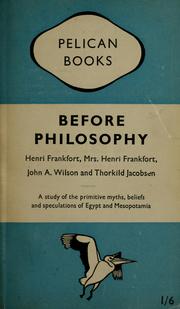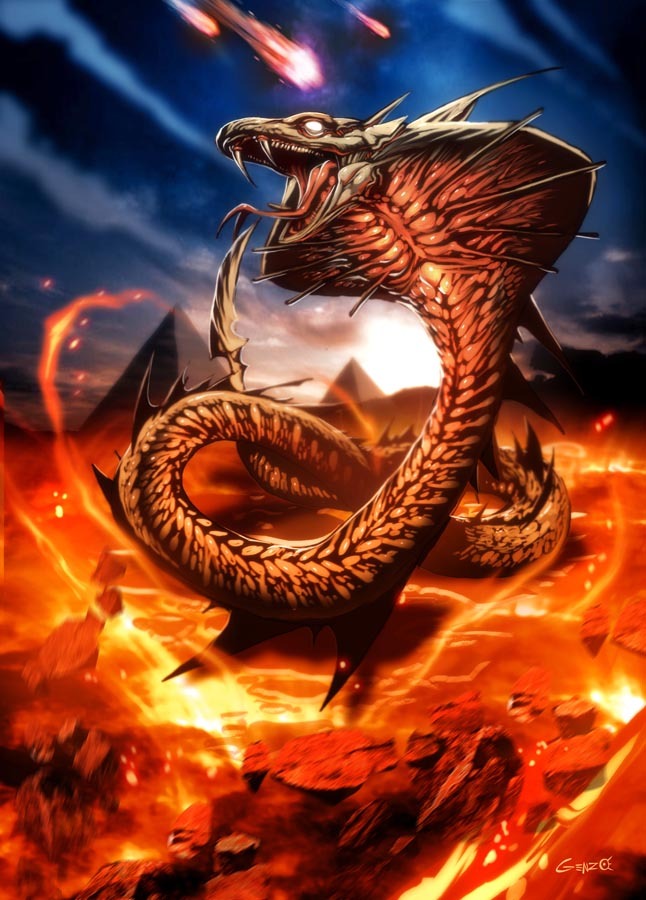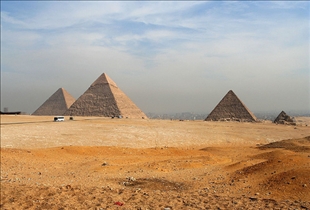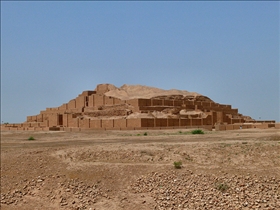That is the name of a book I bought for mere quarters at Afterwords, a second-hand bookstore located downtown St. John's, and I do believe I will write a book report of sorts on it (oh my, if my younger self could see me willingly using my free time to write book reports....) It is, as you can see from the subtitle, "a study of the primitive myths, beliefs, and speculations of Egypt and Mesopotamia".
Right at the outset the authors encourage the reader to leave his or her habits of thought at the door, and to at least try to think as ancient humans thought themselves. To do this you must understand how they viewed the world around them - perhaps the most important distinction between us and them when trying to make sense of their mythology. The following quote is in many ways the central thesis of the book (for those grading my report):
The fundamental difference between the attitudes of modern and ancient man as regards the surrounding world is this: for modern, scientific man the phenomenal world is primarily an 'It'; for ancient - and also for primitive - man it is a 'Thou'.As we watch the Sun rise and fall our idea of it is distantly removed from what our senses actually perceive. What we see is a bright yellowish disc that appears to drop over the horizon in the West and "rise" out of it in the East. We now know that this object is actually a massive ball of burning gas, and that what looks like rising and falling is actually due to the Earth's orbit around it. But how could someone living along the Nile thousands of years ago form such an idea? Furthermore, why would this person conceive of this object as being something non-living? What a farmer knew was that this entity gave light and warmth, but also life and death, and not by accident, but through a willful action.
The world appears to primitive man neither inanimate not empty but redundant with life; and life has individuality, in man and beast and plant, and in every phenomenon which confronts man - the thunderclap, the sudden shadow, the eerie and unknown clearing in the wood, the stone which suddenly hurts him when he stumbles while on a hunting trip. Any phenomenon may at any time face him, not as 'it', but as 'Thou'. In this confrontation, 'Thou' is not contemplated with intellectual detachment; it is experienced as life confronting life, involving every faculty of man in reciprocal relationship. Thoughts, no less than acts and feelings, are subordinated to this experience
Myths were built up around these phenomena in order to make sense of them. The Sun was a god who traversed the underworld every night, and after defeating the powerful serpent Apophis, was reborn in the East every day. The Nile originated in the underworld kingdom of Osiris, and was a god itself, or at least was merged with or was an extension of a god. All things and all people could become vessels of a god; for that matter gods could merge together or substitute for one another. It is all difficult to keep track of.
Here's a cool picture of Apophis:
Whoa, man! Cool shit!
Myth is a form of poetry which transcends poetry in that it proclaims a truth; a form of reasoning which transcends reasoning in that it wants to bring about the truth it proclaims*; a form of action, of ritual behaviour, which does not find its fulfillment in the act but must proclaim and elaborate a poetic form of truth.
*Italics added by me
So, the first half of the book prepares us for thinking in this sort of "mythopoetic" way and then goes into a lot more depth about the myths of the Egyptians themselves and what influenced the form these myths took - geography, for example, played a major role in the way they thought. The authors then move unto Mesopotamia, but I won't dwell much on that only to highlight the point I found most interesting.
That is, how you can tease out the "mood" of a civilization through archeological findings. The early ancient Egyptians were confident, proud, and lived life fully and lustfully. They built the pyramids which still stand today - can you imagine how proud they would be to see them still standing? The ancient Mesopotamians were more introspective, somber, and religious (closer to our notion of religious); they left us the crumbling ziggurats, but they probably didn't hope for them to stand the test of time.
Were the Mesopotamian to return, he could hardly feel deeply disturbed that his works have crumbled, for he always knew, and knew deeply, that as for 'mere man - his days are numbered; whatever he may do, he is but wind'. To him the centre and meaning of existence always lay beyond man and his achievements, beyond tangible things in intangible powers ruling the universe.
great job!
nice try
And so there we have it.




The funny thing about the ancient egyptians is that the high water mark of their god-pharaohs (the pyramids were literal machines for celestial transportation) came quite early. The great pyramids of Giza? All from the Old Kingdom. They never matched that again. Unsurprising, really. It was a very inefficient use of human resources.
ReplyDeleteFlippancy aside, I could not agree more with the gist of the book you reported on. We must never fall into the trap of expecting the past to suck up to the present. People even three hundred years, let alone three thousand years ago, must be approached on whatever we can ascertain to be their own terms.
The disappearance of new monuments and impressive structures is noted in the book as well. The authors theorize that this was due in part to a change in the Egyptian psyche. Increasing incursions into their territory by foreign groups, vandalism and robberies of existing monuments and tombs, and other reminders of their vulnerability caused the Egyptians to move from a life that stressed materialism to one that valued community and righteous living:
ReplyDelete"A second passage gives clearly the statement that the god delighted more in good character than in elaborate offerings; the poor man could thus have as good a title to god's interest as the rich. 'more acceptable is the character of a man's heart than the ox of the evildoer.'"
Also the pharaohs were notorious for plundering their predecessors' works for building material. For a similar reason quite a lot of Roman stonework ended up decorating mosques and castles.
ReplyDeleteI suspect that has a bit to do with as well.